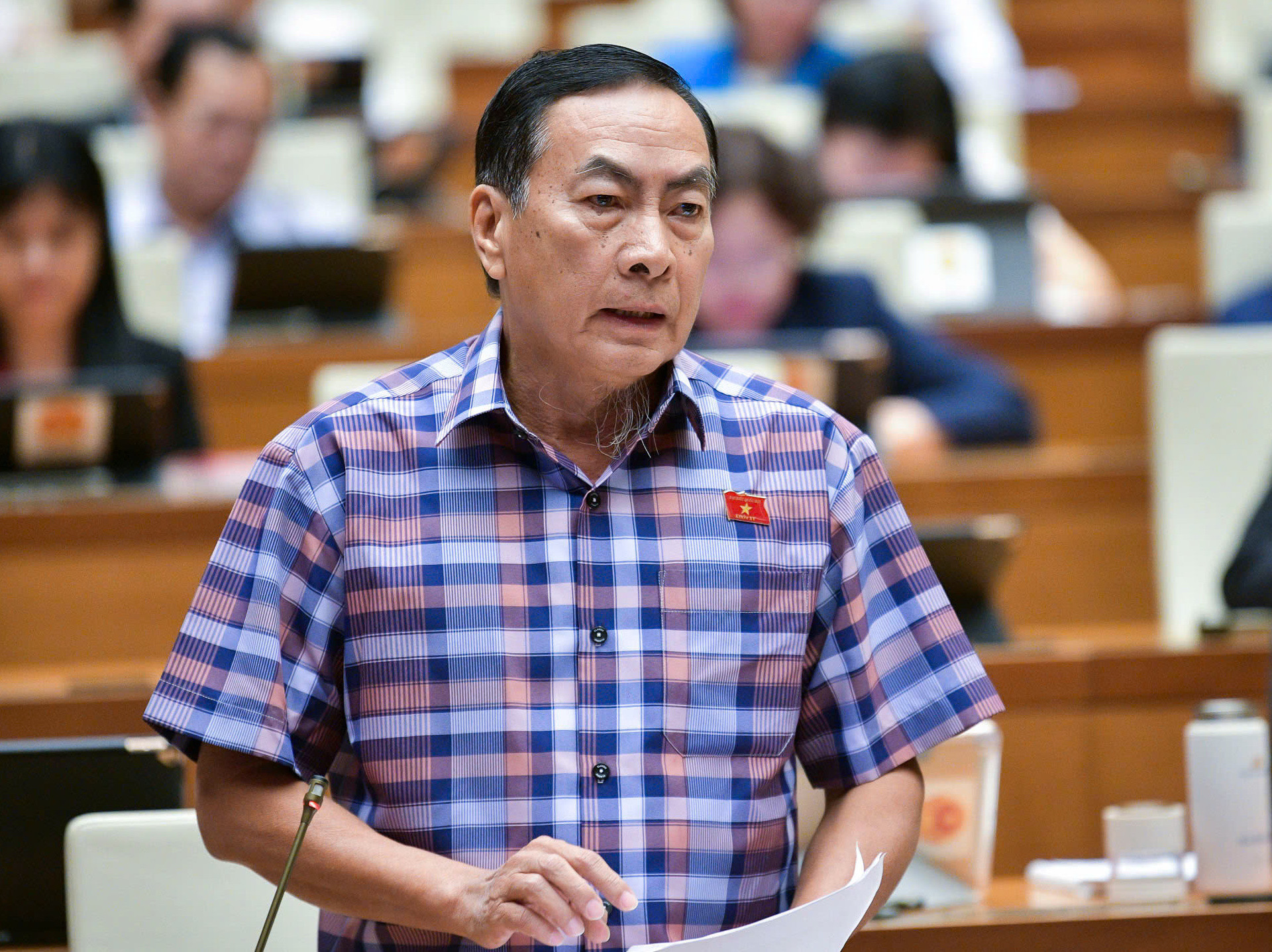On the morning of November 12, Minister Nguyen Manh Hung responded to questions from National Assembly deputies on three main areas concerning the sector.
These areas include solutions to improve the quality of journalism amid the social media boom, the role of revolutionary journalism in promoting socio-economic development, the management of advertising on both traditional media and online platforms, and investments to enhance telecommunications infrastructure, particularly in remote, rural, and ethnic minority regions.

Before fielding questions from Assembly members, Minister Hung provided an overview of the relevant topics.
According to the Minister, the Information and Communications sector is multi-disciplinary, encompassing infrastructure, technology, economics, and politics, all related to digital technology. This includes digital infrastructure, digital technology, the digital industry, and state management in various areas such as broadcast journalism, electronic information, publishing, and distribution—all of which increasingly operate on digital platforms and digital communication infrastructure.
“As a result, many refer to the Ministry of Information and Communications as the Ministry of Digital Infrastructure or the Ministry of Digital Transformation,” he explained.
The Minister shared that the ICT sector generates annual revenue of $150 billion, which represents one-third of the national GDP, and consistently grows at a rate twice that of the GDP.
Minister Hung also emphasized that the sector encompasses many strategic technologies, including the Internet of Things (IoT), big data, cloud computing, quantum computing, artificial intelligence, virtual reality, and cybersecurity.
These emerging technologies, crucial to digital advancement, are rapidly developing and contributing to fundamental production forces, creating new digital spaces, new resources in the form of digital data, and providing a foundation for digital infrastructure, technology, and industry to transform traditional sectors essential to the country’s growth in the digital era.
The Minister expressed gratitude to National Assembly deputies and voters across the nation for their support and constructive feedback, which has helped the sector fulfill its mission.

Addressing each of the main topics of questioning, Minister Hung shared the sector’s achievements.
Regarding journalism, the Minister noted that Vietnam’s revolutionary press has made significant strides, with journalists meeting the public’s demand for timely information.
Through effective communication, the media has shaped public opinion, fostered societal consensus and trust, and inspired Vietnam’s aspirations, turning them into a significant spiritual force contributing to socio-economic growth.
The Minister mentioned that the Prime Minister has issued a strategy for the digital transformation of journalism, positioning the online space as the main arena for journalism, “with success or failure hinging on this domain.” Numerous media agencies have worked to implement digital transformation projects to build “professional, humane, modern” journalism that reaches a broad audience.
For the second topic, the Minister explained that the Ministry has enhanced its management of advertising on media and online platforms, collaborating with agencies like the Ministries of Health and Industry and Trade to identify and remove illegal advertisements, particularly on major social media platforms with frequent violations such as Facebook, YouTube, and TikTok.
Efforts include intensified inspection and strict enforcement against brands and advertising agencies violating legal standards and pressure on international platforms to comply with Vietnamese laws.
In telecommunications, the Minister affirmed that the sector is undergoing a second transformation, with telecommunications infrastructure evolving into digital infrastructure as part of the digital economy. Vietnam’s digital infrastructure includes telecommunications, internet, data, and physical infrastructure, enabling the transition from the physical to the digital world.
The Minister cited Party General Secretary To Lam’s assertion: “Digital infrastructure is strategic, akin to transportation and electricity infrastructure, and must receive priority investment to support national digital transformation, and the development of the digital economy and society. It should rank among the top 50 globally by 2030 and the top 30 by 2045, with ultra-high capacity, ultra-broad bandwidth, and be sustainable, green, intelligent, open, and secure.”
The Ministry has recently introduced several strategies and plans defining the criteria for developing national digital infrastructure, with particular attention to improving digital infrastructure in remote, rural, and ethnic minority regions.
The Minister acknowledged that some limitations remain within the Ministry’s scope.
“We view these challenges as a catalyst to drive sectoral development. The issues raised by National Assembly deputies today provide diverse perspectives and insights, helping us gain a comprehensive view of the sector’s status, its limitations, and the responsibilities we bear. They also reveal new solutions, approaches, and strategies,” Minister Hung said.
According to the Minister, Vietnam faces both opportunities and challenges on the path to development under the Party’s leadership, with the solidarity of the entire Party, the people, and the political system.
“Together, we will succeed in the digital transformation revolution, propelling our nation into the new era, an era of growth for the Vietnamese people,” he asserted.
The Minister welcomed all questions from National Assembly deputies and pledged to provide answers “with the utmost responsibility and transparency.” For issues that require additional information, he committed to providing follow-up written responses. For broader, complex issues, he proposed submitting specialized reports to the National Assembly to address deputies’ concerns thoroughly.
At the start of the Q&A session, 91 deputies registered to question Minister Nguyen Manh Hung.
Thu Hang - Quang Phong